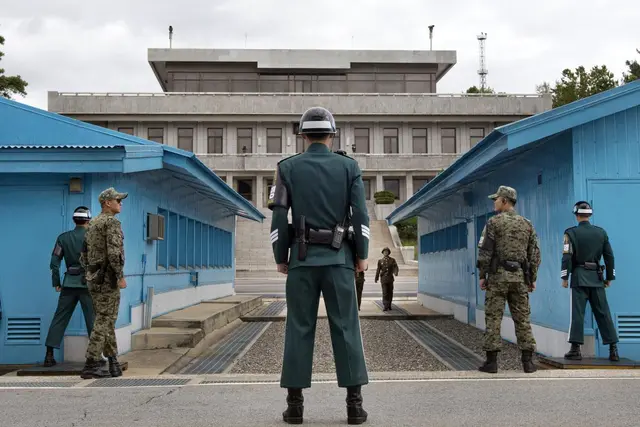The two-day National Financial Work Conference, which ended in Beijing on Saturday, made containing financial risks one of the country's top priorities.
The meeting, presided over by President Xi Jinping, was held against the backdrop of growing enterprise debt, an overheating real estate market, and overcapacity in such sectors as low-end manufacturing.
The debt of non-financial enterprises in China reached 170 percent of its GDP in 2016, according to the Organization for Economic Cooperation and Development.
And in its 2017 China Financial Stability Report released early this month, China's central bank, People's Bank of China, pointed to "the risk of bubbles" emerging in some parts of the country. The report notes that housing loans comprised a quarter of all loans, and accounted for 44.8 percent of all new lending since the start of this year.
All this, as well as the risks in interbank and off-balance sheet business, prompted the central bank to emphasize the need for strengthened financial regulatory capability and better regulatory coordination in its report. Only through guarding against financial risks can a sound and stable financial sector better fulfill its duty and purpose of serving the real economy.
The lack of cooperation among the China Securities Regulatory Commission, the China Banking Regulatory Commission and the China Insurance Regulatory Commission was to blame for some of the problems and potential risks in the financial sector and many believe it has also encouraged regulatory arbitrage and fueled the growth of risky financial products.
Thus a committee is to be set up under the State Council aimed at markedly improving coordination among the three agencies and promoting greater sharing of information and plugging gaps in their oversight.
Despite some ringing the alarm bells, the risks in China's financial sector are controllable. Bad bank loans remain at a low level, liquidity in the market is stable, and sound economic growth in the first half of the year means the central bank does not need to continue to expand credit to spur growth, thus providing more leeway for financial reform measures.
And the government will continue to deleverage the economy by implementing a firm and prudent monetary policy, reduce the leverage of State-owned enterprises and local government debt, and crack down on financial irregularities.
As Xi said at the meeting, the government must take the initiative to monitor, warn against and deal with risks in a timely manner. The new committee will help do these.
Financial reform plans unveiled to serve real economy in sustainable
China unveiled reform plans Saturday to improve the financial sector's capabilities to serve the real economy while guarding against systemic risks.
China must strengthen the leadership of the Communist Party of China over financial work, stick to the basic tone of seeking progress while maintaining stability, and respect the rules of financial development, said President Xi Jinping, at a two-day National Financial Work Conference that ended Saturday.
The conference has been convened every five years since 1997 and is widely considered to set the tone for financial reforms.
Three tasks are highlighted in the meeting, including making the financial sector better serve the real economy, containing financial risks and deepening financial reforms.
Serving the real economy is the bounden duty and purpose of the financial sector and the fundamental way to guard against financial risks, Xi pointed out.
The financial sector should improve service efficiency and quality and channel more resources into major and weak areas of economic and social development, he said.
Developing direct financing will be prioritized while indirect financing structure should be optimized by accelerating strategic transformation of state-owned major banks and developing small and medium-sized banks and private financial institutions, according to Xi.
The reiteration of the role of the financial sector points out the development direction of the financial sector and emphasis on direct financing is also quite reassuring for the stocks and bond markets, according to Li Huiyong, a senior analyst with Shenwan Hongyuan Securities.
Xi also said that guarding against systemic financial risks is the eternal theme of financial work and the government should take stronger initiative to monitor, warn against and deal with risks in a timely manner.
China will accelerate developing laws and regulations governing the financial sector, improve macro prudential management and emphasize functional as well as behavioral regulation, according to Xi.
The government will continue to deleverage the economy by firmly taking a prudent monetary policy and prioritizing reducing leverage in state-owned enterprises, Xi said.
The country will also resolutely deepen financial reforms including improving financial regulation coordination and shoring up weak links in supervision.
China will set up a committee under the State Council to oversee financial stability and development and the central bank will play a stronger role in macro prudential management and guarding against systemic risks, according to Xi.
The introduction of the State Council financial stability and development committee will help improve regulation effectiveness and address regulation challenges brought by increasingly mixed financial services, according to Lian Ping, chief economist with Bank of Communications.
Reforms of the financial regulation framework should be based on China's domestic conditions and all financial businesses will be put under supervision, according to Premier Li Keqiang.
The world's second largest economy will further open up its financial market to promote the internationalization of the Chinese yuan and capital account convertibility in a steady pace, Xi added.
China will also increase efforts in improving legal framework, credit mechanism and talent development for the financial sector to help Chinese economy expand steadily, Premier Li said.
(CHINA DAILY)
 简体中文
简体中文

